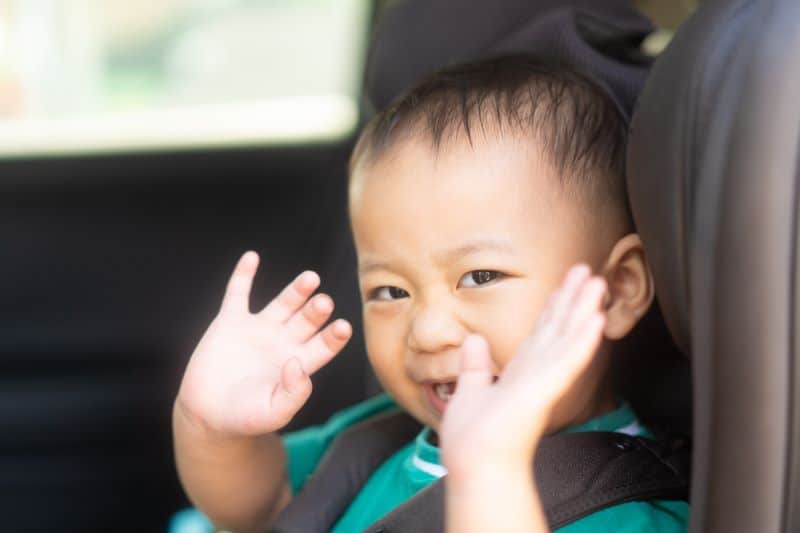As I sat down to write this blog, I couldn’t help but think about the last time I was able to share with each of you. We’ve been busy at Great Kids®, creating lots of new products and updating existing materials. Due to this, we had to take some time away from the blog. However, I was so excited when I discovered that we could begin sharing with all our readers again.
Before I began my writing, I went back to review the last blog I developed. It feels like forever ago that I wrote it. When I created that blog, the world was different. It was before a pandemic spread across the globe affecting individuals from every nation. It was before wearing masks and distancing ourselves from others became the new normal. It was before people grieved the loss of more individuals who were taken from a world that is often fueled by racism and discrimination.
When I reflect on the year 2020, it’s safe to say a lot has changed. People have faced a year of loss, frustration, confusion, and exhaustion. It’s been a tough year for many individuals and much more challenging for some than others. Amid this dark time, I’ve found myself searching for light. I’ve managed to see a ray of light when I read articles about communities sewing cloth masks for those in need. This light also shines when I see individuals of different backgrounds joining to advocate for a society that embraces equality. Lastly, this light appears each time I wave to a kiddo at the grocery store or while I’m on a jog, and their face beams with a smile. In these simple interactions with children, I always remember that this light I see in adults starts glowing in childhood. It’s what many of us refer to as empathy.
Empathy is not something we’re born with the day we enter this world. It’s instead a skill that takes quite a long time to develop. To have empathy means that we can try to imagine how another person is feeling and support this individual in a loving and caring way.1,2 I like to think of empathy as the foundation for love. From the moment a baby is born, parents are tasked with the gift of helping their infant grow into an adult who has empathy.
As you read these words, I understand that it may seem unlikely that we can teach such tiny humans to develop empathy. After all, they’re entirely dependent upon others to meet their needs. This is why pediatric experts remind us that developing empathy takes time. In fact, the part of our brain that is responsible for producing empathy does not fully finish developing until our mid-twenties.3 Pretty wild concept, right? This means that our brain’s region that supports us to do things like manage our emotions and imagine how others feel is not developed until we’re adults.3 On the other hand, the lower part of our brain responsible for our impulses is mostly developed when an infant is born. This explains why a toddler can so quickly drop to the floor with crocodile tears as screams fill a room because they realize that their favorite blankie is in the washing machine. However, this same toddler CAN’T comprehend why taking the blue crayon away from the child beside them is sparking intense anger and frustration in their friend.
Children are still developing the upper part of their brain that allows them to understand situations like the ones described. They can’t fully grasp the concept of empathy in the early childhood years.3 To be honest, even as an adult, I sometimes struggle with this concept. I know that I’ve slammed on my brakes in response to someone pulling out in front of me. At this moment, I most certainly didn’t use empathy and try to imagine why the driver in front of me might be in a hurry.
I give this example to remind us that learning empathy isn’t an easy process. However, it’s such a critical skill to develop in life. Luckily, there is something parents can do to guide their children in growing into empathic adults; showing empathy themselves by labeling their child’s emotions and then doing something to support them or, as we like to call it at Great Kids®, use E-Parenting or Empathic Parenting.1,2
Using these empathic parenting responses requires more than seeing a child’s emotions. Empathy asks that parents connect with their children. One expert describes empathy as feeling with an individual instead of feeling for them.2 The more I learn about empathy, the more I view it as a powerful tool we have amongst us. The best aspect of this tool is that parents have a child’s lifetime to help them learn how to use empathy, beginning from the moment their little one enters this world.
Connecting with an infant or toddler and imagining how they feel, then responding to them with love and support is the start of growing an empathic child.1,2,3 I also see it as the beginning of raising a human who has compassion for the people in this world. When a child sees their friend crying and feels sad themselves, empathy is at work. When a teenager stands up to the adolescent who is bullying others, empathy is thriving. When a home visitor changes their entire way of providing services so that they can continue to support families during a pandemic, empathy is alive. When people from around the globe join together to raise their voices, calling for an end to systemic racism, empathy is pushing through to make room for that foundation of love.
Empathy is what is needed for this globe to thrive, and it all begins from the moment a parent connects with their newborn’s emotions. In a world that tells us babies need top-rated exercise saucers and the cutest of clothes, it seems there is a simpler way for parents to show their love…through empathic responses. Who knows, that little one who is embraced by empathy might be the one who grows up and changes this world. I have a strong inkling they will. After all, they’ll have the ability to feel with others.
References
1. Parlakian, R., & Lerner, C. (n.d.). How to help your child develop empathy. Zero To Three.
https://www.zerotothree.org/resources/5-how-to-help-your-child-develop-empathy
2. RSA. [Brené Brown]. (2013, December 10). Brené Brown on empathy [Video]. YouTube.
https://www.youtube.com/watch?v=1Evwgu369Jw
3. Siegel, D. J., & Bryson, T. P. (2012). The whole-brain child: 12 Revolutionary strategies to nurture your child’s developing mind. Bantam Books Trade Paperback Edition.
About the Author

Rachel Cook, MSW is the Curriculum Content Manager for Great Kids. She worked as a Home Visitor using the Great Kids curriculum prior to coming to work for Great Kids in 2017.


